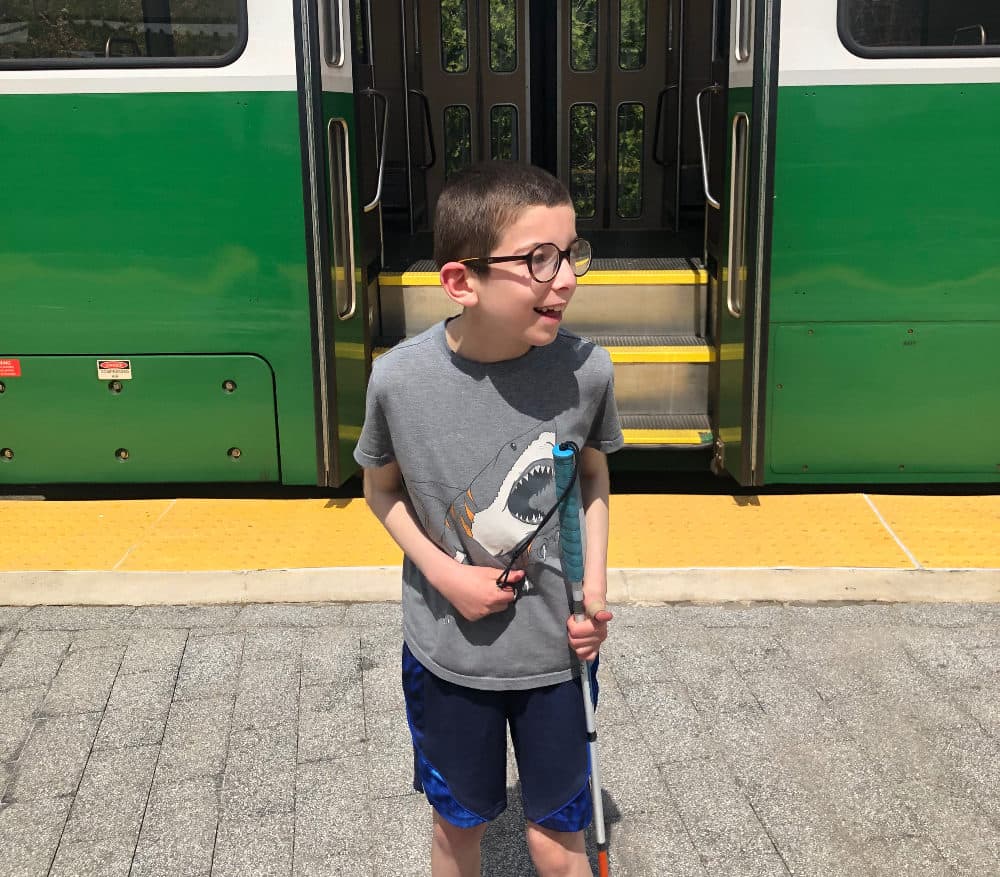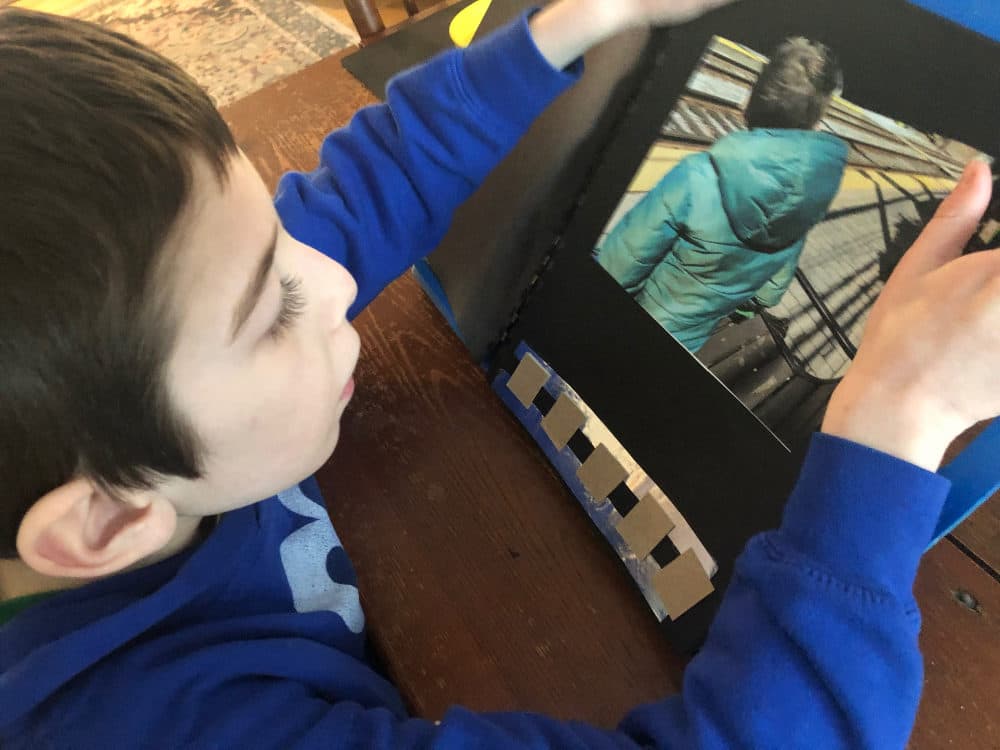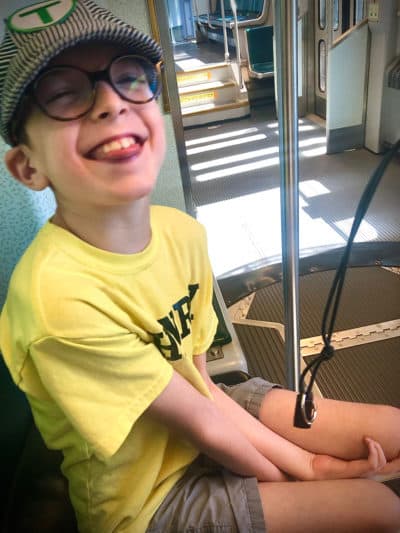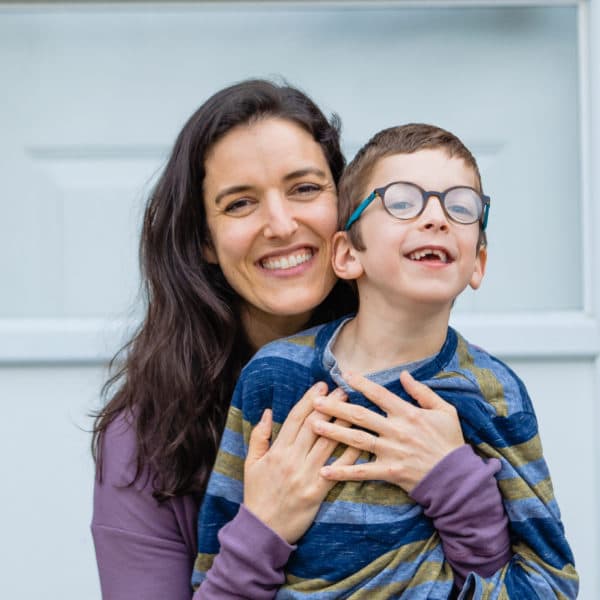Advertisement
Commentary
Until he was 5, my son lived in ‘a world where no one knew he was blind’

From the very beginning, so much about my son Henry didn’t make sense. The clues were all there; we just didn’t know how to read them. He didn’t look at me or recognize me when I walked into the room. He wasn’t interested in toys, books and videos. He freaked out in new and busy environments. He wasn’t gaining weight or meeting any milestones. At about five months, his eyes began to shake.
We spent years navigating a gauntlet of medical providers, specialists, MRIs, ER visits and new diagnoses. Yet, for the first five years of Henry’s life, his disability went undiagnosed. Even his pediatric ophthalmologist insisted that Henry’s vision was fine and instead attributed his challenges to attention and behavioral issues. Henry was a gentle soul, but several times a day he would have meltdowns where he screamed, kicked, pulled my hair, scratched me and threw anything he could get his hands on. I had no idea what to do, and it just broke me to see him like this. Now, I know he was trying to communicate how hard it was to exist in a world not designed for him, a world where no one knew he was blind.
All those years, Henry was struggling with visual attention and visual recognition, which prevented him from accessing and understanding the world around him. His vision was unreliable. A busy environment, a hot day, or feeling tired could make using his vision nearly impossible. We know this now.

As we tried to help Henry, our family was confronting the grief and trauma that comes with raising a child with disabilities and complex medical needs in a society that is not fully accessible and inclusive. My journey as a parent was arduous; disability parents talk about this all the time. We have to be the ones to cut the path forward for our kids. I had to fight for Henry.
When Henry’s preschool teacher acted on her suspicion and invited a vision specialist to join us for a meeting, she uttered the words that changed our lives: “Henry shows behaviors of CVI.”
I had never heard of CVI, or cortical/cerebral visual impairment. This is true for many of the parents of children who have CVI, which is misunderstood and underdiagnosed despite being the leading cause of childhood blindness. CVI is a brain-based visual impairment caused by damage to the visual pathways or visual processing areas of the brain. Complications of premature birth, lack of oxygen, pediatric stroke and genetic conditions are common causes.
Many children with multiple disabilities, especially with CVI, aren’t accurately and comprehensively diagnosed until they are older. Even the five years my family waited for the correct diagnosis was too long. Precious time was wasted. Henry missed opportunities to build foundational skills and concepts and was falling further and further behind. During those emotionally exhausting years, we felt like no matter what we did, we were failing Henry. Now that we had a diagnosis, I had to make up for lost time; I just didn’t know how.
When Henry’s preschool teacher acted on her suspicion and invited a vision specialist to join us for a meeting, she uttered the words that changed our lives.
So, I did what many parents raising a child with disabilities do — I dove head-first into the research. I found an online library of webinars and courses. And best of all, I found a parent community — a group of moms who were also raising kids with complex disabilities — and it became a lifeline. Their guidance, validation, and affirmation gave me a sense of belonging at a time of immense uncertainty and fear. I felt that I could a take a deep breath for the first time in years. This is the power of community, information and resources. I started to find a way forward.
We learned that most educators don’t know enough about CVI to give kids access to learning, but we were lucky to find a teacher of the visually impaired (TVI), who deeply understands CVI and is specially trained to teach Henry to read in both print and Braille. Today Henry is on a path to literacy. He has a strong sense of belonging in his fourth-grade classroom in a public school outside of Boston. He sees himself as a learner, a reader, a problem solver. His orientation and mobility specialist helps him to navigate his community using a white cane. Thanks to his collaborative and creative educational team, Henry now has agency in terms of how he wants to access the world. This approach has been life-changing for Henry and for our family.

I remember when his teacher, the TVI, sent a video of Henry reading a short sentence. I dropped my phone and shouted in disbelief. I rewatched it dozens of times. Progress is hard work for Henry, so this breakthrough was a big turning point.
These days, he loves reading his adapted books — with both print and braille — that his TVI makes for him. They are all about his train rides. You can find us on a train every weekend. Henry is the one announcing all the stops at the top of his lungs and asking everyone which stop is theirs. His love for the T has been his gateway for literacy and math.
I constantly wonder what could be different now if we’d found the right resources sooner. It’s hard, as a parent, to live with regret and guilt. Still, while this has been a difficult journey, Henry is a gift to my family and this world. He is a child on the blindness spectrum who makes others feel seen. Whether it’s family, neighbors, classmates at school, the cashier at Dunkin or the MBTA driver, he shows others that they matter.
The future is hard to think about for our kids with disabilities, because it’s so uncertain. But I do know that every child with a disability has a right to a timely diagnosis, targeted interventions, effective services and accessible educational programming. And my Henry, like all people living with disabilities, deserves a future where he defines his own success and lives with agency, joy and belonging.
